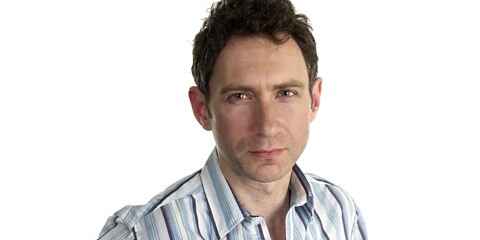CST Blog
BBC Radio London breaches guidelines during antisemitic call
31 December 2015

On the Simon Lederman show on BBC Radio London early in the morning of 22 December 2015, a man named as “Andy from St Margaret’s” was allowed to make antisemitic accusations without significant condemnation or rebuttal. CST condemns the BBC for allowing the caller to continue without being properly opposed or cut off by the presenter. CST also believes the content of the call is in direct contravention to the BBC’s own guidelines for dealing with controversial subjects, impartiality, religious sensitivity, harm and offence.
CST will be making a formal complaint to the BBC and to Ofcom on the basis of the alleged breaches described below. We believe that the BBC fell far short of their responsibilities to their audience on this occasion and we have received several complaints from listeners about this offensive call.
The allegation of “Zionist Jewish” control of both the media and the financial systems is an old antisemitic theme that still resonates. Andy stated:
“They are trying to control us more and more and more. They want to put a chip up our backsides, a ring through our noses, and a visor for our horizons… the elite… the Rothschilds.”
Andy continues on and claims Jews, spearheaded by the Rothschilds family, run the financial system and the Federal Reserve. We believe that this accusation directly contravenes numerous BBC guidelines, including Guideline 1.3.2 which states that the BBC must do all they can "to ensure that controversial subjects are treated with due accuracy and impartiality". Additionally the comments contravene the requirements outlined in Section 4: Impartiality: Controversial Subjects 4.4.8. BBC did not, at any point during the conversation or later on BBC iPlayer signpost or acknowledge that the programme contained a controversial and highly offensive subject. To mitigate this Simon Lederman or the BBC could have offered listeners information on antisemitism, such as CST’s Annual Discourse Report, as directed in Section 5: Harm and Offence: Content Information 5.4.3, but they did not.
Andy’s antisemitic view of Jewish control is undoubtedly derived from an extreme fringe and is not, thankfully, generally found in mainstream discourse. However, Lederman allowed Andy to continue spewing antisemitic rhetoric for a full 13 minutes before he cut him off. Andy alleged:
“Most of the Jews of the world come from Eastern Europe, from a place called originally, an empire called Khazaria…The Rothschilds, the people who own the Bank of England, the people who own the Federal Reserve, they’re all Zionist Jews. The people who own corporate America, the media, you’ll find if you just do a little bit of research, they’re all Zionist Jews. We are ruled by Zionist Jews.”
Even if the BBC argues that Andy's fringe conspiracy theories were worthy of broadcast, according to the BBC's own guidelines proportional airtime should have been given to any caller offering an alternative viewpoint, as directed by the guidelines on Impartiality: Breadth and Diversity of Opinion 4.4.2 which state “minority views should not necessarily be given equal weight to the prevailing consensus”. Additionally guideline 4.4.4 states “responses should not be given a wider significance than they merit and we should take care not to misrepresent the relative weight of opinions expressed”. Following the interview, Simon Lederman did urge listeners to call in and react to the antisemitic comments, and one labelled Andy an "angry conspiracy theorist.” However, none were on the air for close to 15 minutes like Andy was. Therefore Andy’s call was not proportional and was given more than “equal weight to the prevailing consensus”.
The guidelines stress the BBC should “also be prepared to apply appropriate scrutiny to audience opinions”. Lederman did not do this when Andy claimed during a discussion about the creation of the State of Israel:
“They control the money, the money, finance… 80% of corporate America, of the media, is owned by Jews. And they’re Zionist Jews.”
In no way did Lederman attempt to scrutinise Andy’s unfounded and antisemitic claims. Lederman responded simply by asking Andy “what would you do?” if hypothetically he had been in power following the Holocaust.
The BBC in its own guidelines on Impartiality: Controversial Subjects 4.4.7 and on Impartiality: Controversial Subjects 4.4.7 calls on its employees to clearly separate “between matters grounded in fact and those which are a matter of opinion” and additionally for opinions to be “clearly distinguished from fact”. Numerous unfounded allegations made by Andy (such as the claim that the Bank of England is owned by "Zionist Jews") were not distinguished from facts.
Apart from spreading antisemitic conspiracy theories about Jews and causing harm and offence, Andy at the same time made generalisations that could alienate and offend Orthodox, non-Orthodox and secular Jews. Andy claimed:
“Zionism is about the state of Israel. But if you go to true Judaism, they are against the state of Israel, the very, those guys with the hats and the curly hair, they have huge protests”.
Andy in this case is both making the assumption the only “true” Jews are those who, as Simon assumes, “are Orthodox Jews”. Firstly, in making this claim Andy peddles a stereotype that all Orthodox Jews wear “hats” and have “curly hair”. Secondly, the comments also alienate Jews who are not Orthodox; those who are not deemed “true” Jews by Andy, such as those who follow Reform, Liberal or Masorti strands of Judaism. These comments breach BBC guidelines in Section 4: Impartiality: Controversial Subjects 4.4.6, which state the BBC must be aware of “….sensitivity in terms of relevant audiences' beliefs and culture”. The BBC cites both the Racial and Religious Hatred Act 2006 and Ofcom’s Broadcasting code in Section 12: Religion which states the BBC should:
“Take care to avoid unjustified offence. We aim to achieve this by ensuring our output is not used to denigrate the religious beliefs of others, while upholding the right to freedom of expression. Under the Ofcom Broadcasting Code, "The religious views and beliefs of those belonging to a particular religion or religious denomination must not be subject to abusive treatment". In law, the Racial and Religious Hatred Act 2006, which applies to England and Wales, forbids a person from using threatening words or behaviour or displaying written material that is threatening" if he intends thereby to stir up religious hatred".
Despite this clear guideline, Andy was allowed to purport, without any rebuttal:
“We keep going on about the Jews… mainstream media, they keep banging on about the Jews and the Holocaust… we keep going on about six million Jews.”
The BBC rightly sets out a code of practice for dealing with external contributors and for assessing the risks of broadcasting live output. Unfortunately, the BBC production team and Simon Lederman do not appear to have followed this code of practice in handling this call. The BBC’s own guidelines 17.4.36 for interacting with audiences states:
“…Because phone-ins are live, we should be ready to deal with contributions that may cause widespread offence, or break the law... Care should be taken to establish whether they are appropriate to put to air, and appropriate referral made in cases of doubt… When producing a phone-in on a difficult or sensitive subject, the production team should be briefed on how to deal carefully with contributors and, if appropriate, support systems should be in place…”
A BBC spokesperson told the Jewish Chronicle: “The aim of the programme is to discuss and debate issues raised by our listeners. This was a live phone in and the caller was challenged on his views throughout the conversation.”
Read More

Antisemitic Incidents Report 2025
11 February 2026

Antisemitic Incidents Report January-June 2025
6 August 2025

Love since 7 October
14 February 2025